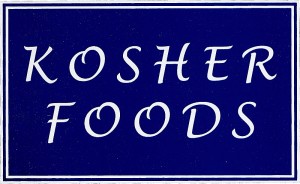What is the heart and spirit behind the biblical dietary laws? I will, in part, attempt to answer this question the following brief teaching.
The Genesis creation account records that YHVH Elohim made man in his own image (Gen 1:26). As such, the first humans, Adam and Eve, had spiritual communion with their Creator. Though man fell quickly to the temptation to sin, which separated him from a sinless, set-apart and righteous Creator, YHVH has desired to redeem man from the power of sin to be set-apart (holy or in Heb. kadosh) as he is set-apart (e.g. Lev 11:44).
Israel was redeemed from YHVH’s judgment against sin when they sacrificed the lamb on Passover and painted the blood on the door posts of their homes. YHVH then immersed Israel in the Red Sea (a picture of baptism for the remission of sins) and led them to the foot of Mount Sinai. YHVH revealed his Torah-truth (his instructions, teachings and precepts in righteousness) to the nation of Israel from Mount Sinai so that they could become a set-apart (kadosh) kingdom of priests (Exod. 19:6). He was showing them the pathway of righteousness so that after having been redeemed by the blood of the lamb—a direct prophetic picture pointing to Yeshua the Lamb of YHVH slain from the foundation of the world—they could have fellowship with him by avoiding sinning by walking in the straight and narrow path of righteousness.
Part of the walking in a loving relationship with a righteous and totally set-apart (kadosh) YHVH involves keeping his commandments as Yeshua said in John 14:15. To know and to love YHVH is to obey his commandments (1 John 2:3–6). Those who love him and back up their belief in him with the actions of obedience (faith without works is dead, Jas 2:14–26) are better off than the demons who believe in Elohim only, but do not back up their belief with obedience to YHVH’s righteous commands. Those who love and obey YHVH are called set-apart ones or saints. Scripture defines saints as those who keep (i.e., observe or do) the Torah commands of YHVH and who also have the testimony of faith of Yeshua, the Messiah, Savior and Redeemer of mankind (Rev 12:17 and 14:12). Those who obey (hear and do) YHVH’s Torah commands will be called the greatest in the kingdom of Elohim while those who disregard the Torah and its commands will be called the least—so says Yeshua in Matthew 5:19!
Keeping YHVH’s dietary laws as outlined in the Torah is a foundational aspect of living a righteous and set-apart lifestyle. If one expects to be a member of the king-priest class in YHVH-Yeshua’s future kingdom, one must begin preparing for this role by keeping YHVH’s Torah in spirit and in truth (as Yeshua taught us in the Sermon on the Mount). This can only be accomplished through the power of the resurrected Yeshua living in us by empowering us through his Spirit. The dietary laws YHVH gave to Moses and the children of Israel are part of living the redeemed and set-apart (kadosh) life that YHVH requires of those who are to become one with him in his kingdom.
The essence of the people of Israel is its spirituality and holiness (Kashruth, by Yacov Lipshutz, p. 15). Each human was made in the image of the Creator. The Testimony of Yeshua (the New Testament) teaches us that each born-again believer in Yeshua has become a new creation and a temple of the Spirit of Elohim in that Yeshua lives in him by the Spirit. Hope Egan develops this thought when she notes that the careful reader sees that Leviticus 11 addresses two different things. First Elohim shows how to avoid becoming unclean (by not touching certain carcasses). This enables a person to enter the tabernacle (later the temple) and make sacrifices. Indeed, this is not applicable today, since there is no earthly temple or tabernacle. Second, he tells his people which animals are permissible to eat. This is unrelated to one’s ability to participate in the sacrificial system. Just as Elohim forbids us from offering unclean animals upon his altar, so too he forbids us from taking unclean animals into the temple of our bodies. This is relevant for anyone looking to the Scriptures for food-choice guidance (Holy Cow! Does Elohim Care About What We Eat, p. 96).
“[E]ven a commonplace function such as physical nourishment, when properly fulfilled, is sacred in nature and sanctifies the human body. Conversely the consumption of forbidden foods defiles the [temple of one’s body], and its sanctity is injured. This injury reduces [one’s] capacity to reap the full spiritual rewards of Torah and its fathomless depths. The result of eating forbidden foods is referred to by the Talmudic Sages as timtum halev—damaging the heart’s ability to fully comprehend.
“To the Jew, the observance of kashruth is not viewed as a restriction preventing him from partaking of culinary pleasure. The affirmation that kashruth gives to his spiritual qualities is the eternal pleasure that true Torah observance brings to life” (Kashruth, by Yacov Lipshutz, pp. 15–16).


